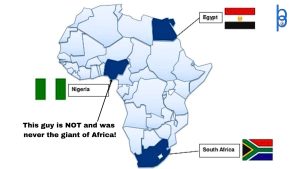
Border traders reject the Naira for CFA
Due to the naira’s depreciation in recent months, the West African market has faced considerable challenges. Trans-border traders are now showing a preference for the CFA or other local currencies of non-francophone countries rather than the Nigerian currency.
Investigations at the Seme border indicate a change in currency preference among traders, signalling a shift away from the time when the Naira held sway in the sub-regional economy.In the past, the naira was commonly used for trade, given Nigeria’s significant trade volume with neighbouring countries.
Nevertheless, it was observed that the value of the naira started to decline from that position in February, eventually reaching a point of complete refusal in March 2024.
Several Nigerian traders have expressed their concerns about the significant risks associated with holding onto the naira, as its value has been steadily declining since last year, reaching its lowest point last month.
According to official reports, the naira experienced significant fluctuations in its exchange rate against the CFA franc throughout 2023. In the first quarter, it traded above N1/1.5 CFA, but then dropped sharply to N1/0.9 CFA in the second quarter and further to N1/0.8 CFA in the third quarter.
Following a period of relative stability in the fourth quarter of 2023, the value opened at N1/0.66667CFA in January 2024. Following a second wave of depreciation in February, the sub-regional fortune experienced a significant decline to N1/0.38308CFA before reaching a new low of N1/0.37595CFA last week.
The traders are already taking measures to protect against potential losses, despite a small improvement in recent days.Nevertheless, the naira is far from its previous value in the subregion in recent years.
The development has a negative impact on the cost of goods imported into Nigeria via West African economies.
As a result, there has been a decrease in business activities in the border towns of Nigeria and the Benin Republic.
Several border markets in Benin, Nigeria, indicate a noticeable change in the behaviour of money changers, or Bureau de Change, who are no longer displaying the Nigerian currency as prominently as they did in the previous year.Even transporters and bike riders, also known as Okada in Nigeria, refused to accept payment in Naira across borders.
They explained that converting Naira to CFA upon their return would result in a loss of some of their earnings. As a result, they claimed that holding CFA was a more secure option.
By Nnaemeka Odenigbo





